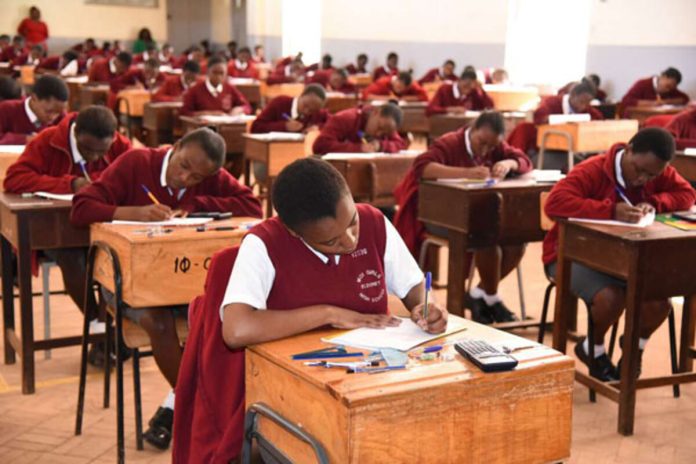The advent of artificial intelligence (AI) has undoubtedly revolutionized the education sector.
The Kenya National AI Strategy (2025-2030) report supports and encourages the use of AI in Kenyan classrooms, highlighting its benefits in addressing educational challenges in underserved and linguistically diverse communities.
Teachers in the competency-based curriculum (CBC) can use AI to provide personalized learning, develop lesson plans, grade students, set exams, and do a number of other things.
TSC advertises CEO position as Nancy Macharia retires
Here are five AI tools that CBC teachers can start using today:
Khanmingo
An AI-powered tutor and teaching assistant, Khanmingo is a chatbot built on Open AI’s Large Language Models (LLMs). Designed by Khan Academy, Khanmingo serves as a tutor for students and an assistant for teachers.
As a teacher’s assistant, it can:
- Generate curriculum-aligned questions
- Create detailed lesson plans
- Recommend personalized assignments for students
Khanmingo is accessible via smartphones and is ideal for teaching mathematics, science, and humanities.
Magic School
Magic School is an educational resource that leverages artificial intelligence to improve learning outcomes and foster student engagement. It bridges the gap between traditional teaching methods and modern educational technologies.
Teachers can use the tool for educational planning, student support, and generating lesson plans, and tracking student progress.
The tool is ideal for teachers of all CBC grades, from lower primary to senior secondary. It is ideal for teaching English, science, social studies, mathematics, and creative arts.
You can register up 4 wives on SHA, govt says as numbers hit 21.6m
EduAide AI
EduAide Ai is an AI platform that hosts various educational resources, which teachers can customize, adapt, and integrate into the CBC.
Teachers can use it to:
– Generate essays, multiple-choice questions, and vocabulary lists
– Plan syllabus outlines
– Design lesson plans,
– Generate worksheets
The idea behind the platform is to automate administrative tasks that would otherwise lead to teacher burnout. The tool is effective in teaching a wide array of subjects, including English Language (ARTS), creative arts, science, and mathematics.
Somanasi
Somanasi is an AI-supported mobile app developed by Kytabu, a Kenyan education technology company. The platform allows learners to access interactive learning materials such as textbooks and exam questions.
With Somanasi, learners can learn at their own pace and access AI feedback and assessment materials, which makes learning more engaging and enjoyable. For instance, a student weak in Grade 8 mathematics can get extra practice problems and hints in the app until they grasp the skill, while another more advanced student can move ahead to new challenges.
Some of the platform’s features include digital textbooks and instructional videos. Teachers can incorporate Somanasi by having students use it for homework or revision, and then use the app’s reports to identify who needs help.
M Shule
Not every school has access to stable internet or computers. That’s where M-Shule shines.
The platform uses text messages and chatbots to provide personalized learning support, skill development, and data collection. M-Shule has access to the CBC curriculum, which it uses to design lessons and activities.
The platform uses individual user data to create more challenging connections, enabling learners to progress through the curriculum.
For instance, if a student wants to learn about multiplication tables, the platform sends activities to the student’s phone so that they can practice multiplication tables.
Teachers can use M-Shule to track learners’ performance, areas of strengths and weaknesses, and proficiency.









